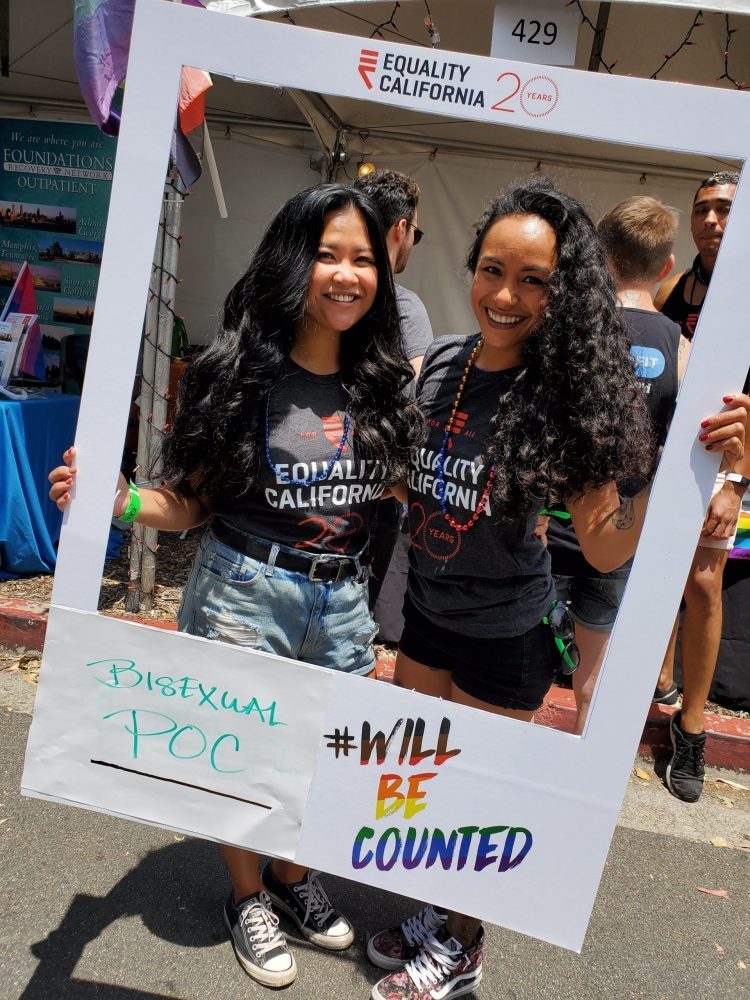LOS ANGELES — Ahead of the 2020 census, Equality California Institute launched a $1 million statewide outreach campaign focused on the LGBTQ community — one of the hardest-to-count populations nationwide — on Wednesday.
The campaign aims to educate and encourage LGBTQ people, especially those who are a part of other historically undercounted populations, to take part in the census by mail, telephone or online. California is home to the nation’s largest statewide LGBTQ population — and key LGBTQ population centers like West Hollywood and San Francisco — and, experts say, is at serious risk of losing a congressional seat for the first time in history.
Equality California Institute’s comprehensive outreach campaign will include:
- Digital advertising on Facebook and the LGBTQ dating app Grindr targeting LGBTQ people in California’s hardest-to-count neighborhoods and those who belong to other hard-to-count populations — communities of color, immigrants, renters, people experiencing homelessness, etc.;
- Peer-to-peer text messaging, which the US Census Bureau recently touted as the most effective way to engage with hard-to-count populations, encouraging self-response, providing reminders offering information on how to find local census kiosks and more;
- 10 regional LGBTQ census assistance kiosks, in traditionally hard-to-count locations throughout the state and staffed by local community-based partners. Locations have been finalized in Los Angeles, San Francisco, San Diego, Sacramento, Bakersfield and Visalia, and additional locations in Napa, Santa Rosa, Ventura County and Santa Cruz are in the process of being finalized. Some locations will specifically serve bilingual LGBTQ populations;
- Engagement with community members at local pride celebrations and other LGBTQ community events across the state;
- Door-to-door canvassing in Los Angeles County, historically the hardest to count county in the nation; and
- Technical support, grant funding and community engagement resources for local LGBTQ and allied community partners — including the California Complete Count Office’s regional LGBTQ outreach leads, local LGBTQ community centers and organizations conducting outreach to other hard-to-count populations to whom LGBTQ people belong.
“The 2020 census is nothing less than a fight for our future — a future that values diversity and invests in the communities that need it most,” said Equality California Institute Executive Director Rick Zbur. “Too often, California’s diverse LGBTQ community is undercounted — which denies us power, representation and funding for programs that the most vulnerable members of our community need to survive. There’s far too much at stake to allow that to happen in 2020. LGBTQ Californians will be counted.”
Conducted every 10 years, the U.S. census attempts to count every living person in the country. Both the U.S. Census Bureau and the California Complete Count Office have designated LGBTQ people as a hard-to-count population. Members of the LGBTQ community who belong to multiple hard-to-count populations — those experiencing homelessness, immigrants, people of color, renters and low-income people — are particularly vulnerable to being undercounted.
Latino Equality Alliance, a local nonprofit organization that serves Latinx members of the LGBTQ community in Los Angeles County, will partner with Equality California Institute to run a census questionnaire assistance kiosk at Mi Centro in Boyle Heights.
“The 2020 census will be critical for the LGBTQ community especially for people of color,” said Latino Equality Alliance Executive Director Eddie Martinez. “We as a community of immigrants and working-class families must be counted. It will determine who represents us as elected officials and the equity of resources that will support our schools, neighborhoods and homes.”
Other local partner organizations include The Gender Health Center, The LGBT Asylum Project, The SOURCE LGBT+ Center, The Dolores Huerta Foundation, Arming Minorities Against Addiction and Disease Institute and San Diego LGBT Pride.
Even after the Trump-Pence Administration scrapped plans to include questions regarding sexual orientation and gender identity in the 2020 census, participation is still crucial. The census will still ask demographic questions about race, ethnicity and gender, and will for the first time include a question allowing same-sex couples to identify as either as spouses or unmarried partners. Additionally, LGBTQ families are disproportionately likely to participate in social safety net programs such as Medicaid and the Supplemental Nutrition Assistance Program (SNAP), in which one out of five LGBTQ families are enrolled. An undercount of LGBTQ Californians would result in less federal funding for LGBTQ families who depend on these programs to survive.
